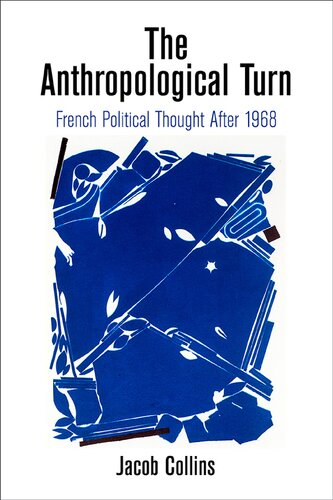

Most ebook files are in PDF format, so you can easily read them using various software such as Foxit Reader or directly on the Google Chrome browser.
Some ebook files are released by publishers in other formats such as .awz, .mobi, .epub, .fb2, etc. You may need to install specific software to read these formats on mobile/PC, such as Calibre.
Please read the tutorial at this link: https://ebookbell.com/faq
We offer FREE conversion to the popular formats you request; however, this may take some time. Therefore, right after payment, please email us, and we will try to provide the service as quickly as possible.
For some exceptional file formats or broken links (if any), please refrain from opening any disputes. Instead, email us first, and we will try to assist within a maximum of 6 hours.
EbookBell Team

4.3
38 reviewsA close look at post-1968 French thinkers Régis Debray, Emmanuel Todd, Marcel Gauchet, and Alain de Benoist
In The Anthropological Turn, Jacob Collins traces the development of what he calls a tradition of "political anthropology" in France over the course of the 1970s. After the social revolution of the 1960s brought new attention to identities and groups that had previously been marginal in French society, the country entered a period of stagnation: the economy slowed, the political system deadlocked, and the ideologies of communism and Catholicism lost their appeal. In this time of political, cultural, and economic indeterminacy, political anthropology, as Collins defines it, offered social theorists grand narratives that could give greater definition to "the social" by anchoring its laws and histories in the deep and sometimes archaic past.
Political anthropologists sought to answer the most basic of questions: what is politics and what constitutes a political community? Collins focuses on four influential, yet typically overlooked, French thinkers—Régis Debray, Emmanuel Todd, Marcel Gauchet, and Alain de Benoist —who, from Left to far Right, represent different political leanings in France. Through a close and comprehensive reading of their work, he explores how key issues of religion, identity, citizenship, and the state have been conceptualized and debated across a wide spectrum of opinion in contemporary France.
Collins argues that the stakes have not changed since the 1970s and rival conceptions of the republic continue to vie for dominance. Political and cultural issues of the moment—the burkini, for example—become magnified and take on the character of an anthropological threat. In this respect, he shows how the anthropological turn, as it figures in the work of Debray, Todd, Gauchet, and Benoist, is a useful lens for viewing the political and social controversies that have shaped French history for the last forty years.